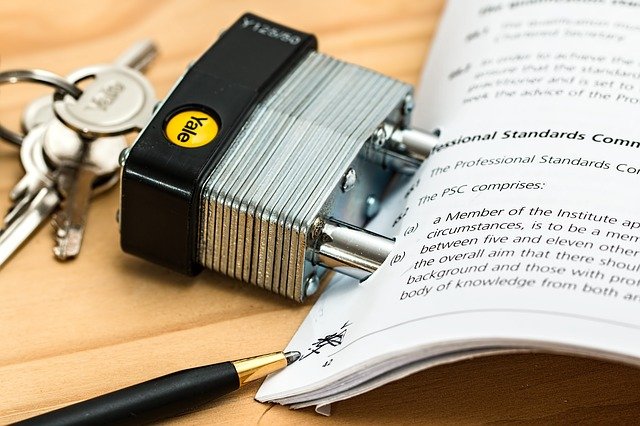In a recent blog we explored potential options for employers to avoid an employment tribunal (available here: https://viewhr.co.uk/how-to-avoid-an-employment-tribunal/). One of the options we identified, alongside mediation and early conciliation, was seeking to agree a settlement agreement with the employee.
In this blog we explore settlement agreements, and what is involved, in greater depth.
What is a settlement agreement?
A settlement agreement is a legally binding agreement that can be formed between an employer and an employee. They are usually used either to agree to end the employment relationship, or after the employment relationship has already ended (sometimes they are used in situations when employment continues but there has been a claim such as discrimination). Typically, they are used to resolve any employment tribunal claim or potential claim from the employee, however, some employers use them as standard in situations such as redundancy to mitigate against potential disputes or claims. Within the agreement, the employee will waive their right to pursue a claim in exchange for a financial sum.
This post looks at the questions that employers may have in relation to settlement agreements.
Does this mean admitting that we have done something wrong as an employer?
No. A settlement agreement is not an admission of wrongdoing, but rather can be a pragmatic and cost-effective way of resolving a matter, compared with the costs of being taken to an employment tribunal. Often both parties will agree that it is in the best interests of both parties to resolve the matter sooner rather than going through a longer process (waiting lists for employment tribunals can be several months or even more than a year). Sometimes the employee will propose the settlement agreement, and sometimes this will be initiated by the employer.
Whilst we don’t touch on this in this post, settlement agreements are sometimes used in situations where there is no dispute but used as a tool to end employment with a financial package.
How is a settlement agreed?
Settlement agreements are typically negotiated in the context of a Protected or Without Prejudice Conversation, which in most cases is a discussion that cannot be legally disclosed in an Employment Tribunal. There are rules around when a Without Prejudice or Protected Conversation applies, however, and the employee needs to understand that they are having a protected conversation and what that means, and so we suggest seeking support from ViewHR to plan for this. There are important differentiations.
Negotiations will then take place, and hopefully an agreement in principle will be reached. The employer will then provide the employee with a draft of the agreement so that they can decide whether to sign the agreement. If agreement is not reached, any HR or legal processes previously underway will usually resume.
The employee must receive independent legal advice on their rights, so that they fully understand the consequences of signing the agreement. Employers may suggest solicitors that the employee could approach for this, but it is ultimately up to the employee and the employer cannot insist that they use a particular solicitor. The employee cannot waive this right, as it could otherwise be deemed that they did not understand what they were signing and therefore render the agreement invalid.
Can I make an employee sign a Settlement Agreement?
No. For any contract to be legally binding, both parties (in this case, the employer and the employee) must agree. As such, negotiations are likely to be required. Typically, the main point of negotiation is the financial sum payable to the employee in exchange for waiving their right to go to an employment tribunal. However, many employees will also seek to agree things such as wording that the employer will use to respond to requests from future prospective employers.
During the process, an agreement in principle will usually be reached before the wording for the agreement is finalised. At that stage, a legally binding contract has not yet been formed, as legally nothing is agreed until everything is agreed. Once the agreement is signed, it is binding upon both parties. The final agreement will include timescales for making payments, and these need to be adhered to, as breaching the agreement may invalidate it.
What costs are involved?
In addition to the settlement sum, employers should also factor in the following costs:
- Any other sums owed to the employee, such as notice pay, any annual leave accrued but not yet taken, and expenses. Unlike the settlement sum, which is not subject to tax and National Insurance if under £30,000, sums due for holiday and notice should be treated as normal for payroll purposes;
- The employer is required to pay for the employee to receive legal advice. The amount of this depends on the case, but will typically be around than £250 – £350 +VAT for the employee to receive basic advice in relation to the signing of the agreement;
- The employer will also typically require an HR Consultant or solicitor to draft the agreement and support the process. This is something that ViewHR are able to help with, and we will can provide an estimate for this.
Should we offer a settlement agreement?
This is really fact dependent. Employers will want to consider the risks against the business, the commercial reasons for settling and potentially the principle of the matter. Sometimes a settlement agreement isn’t the right thing to do based on the facts of the matter (and principle!), but again this requires an employer to assess their appetite for heading to the tribunal.
If you are considering using a settlement agreement to resolve an issue with an employee, there are different options, and sometimes the situation can be prevented if addressed early enough. As such, please contact a member of the ViewHR team today to discuss the situation and identify a plan for resolution.


